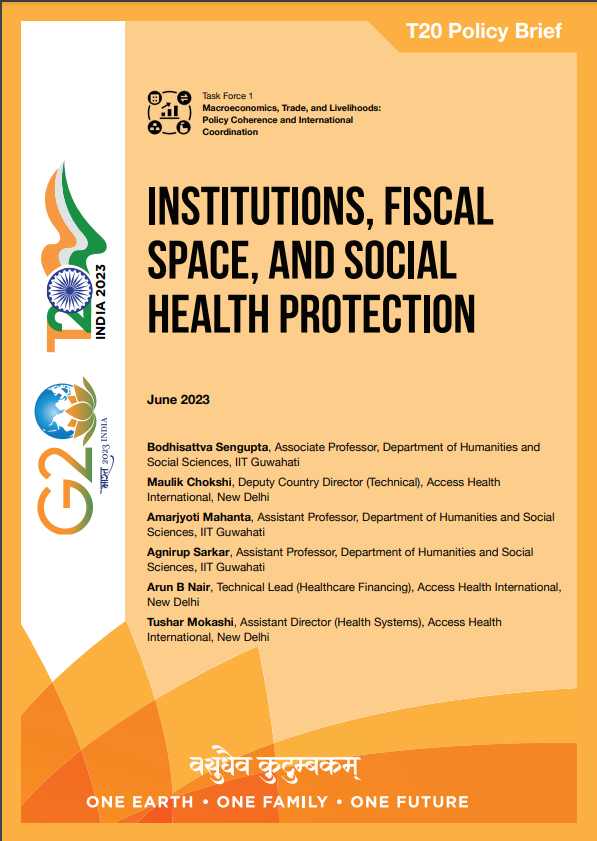Ensuring and managing the fiscal space is necessary for sustained government investment in human capital. As human capital complements physical capital in the ‘production’ of GDP, countries that can raise adequate resources for such investments experience higher growth in the long run. This policy brief explores the relationship between fiscal space and investment in the health sector. It also looks at the institutional determinants of fiscal space in the G20 countries during 2005-2021 and establishes that country-specific institutions determine the evolution of the budgetary space. Compared to ‘normal’ years, the positive effects of institutions are more pronounced during crisis years (in our sample, 2009 and 2020). However, the institutions affect different countries differently. The G20 countries vary widely in terms of their historical experience, economic environment, and institutional realities, thus representing a microcosm of the world. As a result, the policy lessons are scalable at a global level.
Institutions, Fiscal Space, and Social Health Protection
Report by ACCESS Health India
Country: India
Partners: Think20

Related posts
Proceedings of the roundtable on ABDM highlights opportunities and challenges in digital healthcare
June 30, 2024
in
ACCESS Health International announces the release of the proceedings document …
NHA launches the System Integrators in Digital Health (SIDH) Program under the Ayushman Bharat Digital Mission
June 12, 2024
in
The National Health Authority (NHA), Government of India has launched …
ACCESS Health to support the WOHLA initiative as a key member
March 29, 2024
in
As a key member of the market development initiative Frontier …
ACCESS Health Calls for Patient-Centric Healthcare Financing at ISB Healthcare 4.0
March 02, 2024
in
On February 9th, 2024, Dr N Krishna Reddy, CEO of …
Unveiling Strategies to Combat Cardiovascular Disease in the Asia-Pacific Region
January 04, 2024
in
The Asia-Pacific Cardiovascular Disease Alliance, for which ACCESS Health International …
Addressing global health and regulations at the USP Convention
December 05, 2023
in
Dr Krishna Reddy was invited to the South Asia Chapter …

